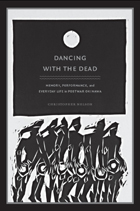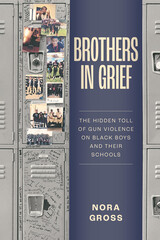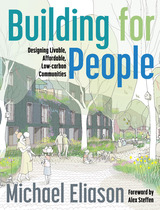2 books about Nelson, Christopher T.

Dancing with the Dead
Memory, Performance, and Everyday Life in Postwar Okinawa
Christopher T. Nelson
Duke University Press, 2008
Challenging conventional understandings of time and memory, Christopher T. Nelson examines how contemporary Okinawans have contested, appropriated, and transformed the burdens and possibilities of the past. Nelson explores the work of a circle of Okinawan storytellers, ethnographers, musicians, and dancers deeply engaged with the legacies of a brutal Japanese colonial era, the almost unimaginable devastation of the Pacific War, and a long American military occupation that still casts its shadow over the islands. The ethnographic research that Nelson conducted in Okinawa in the late 1990s—and his broader effort to understand Okinawans’ critical and creative struggles—was inspired by his first visit to the islands in 1985 as a lieutenant in the U.S. Marine Corps.
Nelson analyzes the practices of specific performers, showing how memories are recalled, bodies remade, and actions rethought as Okinawans work through fragments of the past in order to reconstruct the fabric of everyday life. Artists such as the popular Okinawan actor and storyteller Fujiki Hayato weave together genres including Japanese stand-up comedy, Okinawan celebratory rituals, and ethnographic studies of war memory, encouraging their audiences to imagine other ways to live in the modern world. Nelson looks at the efforts of performers and activists to wrest the Okinawan past from romantic representations of idyllic rural life in the Japanese media and reactionary appropriations of traditional values by conservative politicians. In his consideration of eisā, the traditional dance for the dead, Nelson finds a practice that reaches beyond the expected boundaries of mourning and commemoration, as the living and the dead come together to create a moment in which a new world might be built from the ruins of the old.
Nelson analyzes the practices of specific performers, showing how memories are recalled, bodies remade, and actions rethought as Okinawans work through fragments of the past in order to reconstruct the fabric of everyday life. Artists such as the popular Okinawan actor and storyteller Fujiki Hayato weave together genres including Japanese stand-up comedy, Okinawan celebratory rituals, and ethnographic studies of war memory, encouraging their audiences to imagine other ways to live in the modern world. Nelson looks at the efforts of performers and activists to wrest the Okinawan past from romantic representations of idyllic rural life in the Japanese media and reactionary appropriations of traditional values by conservative politicians. In his consideration of eisā, the traditional dance for the dead, Nelson finds a practice that reaches beyond the expected boundaries of mourning and commemoration, as the living and the dead come together to create a moment in which a new world might be built from the ruins of the old.
[more]

Spaces of Creative Resistance
Social Change Projects in Twenty-First-Century East Asia
Andrea Gevurtz Arai
Rutgers University Press, 2025
Spaces of Creative Resistance: Social Change Projects in Twenty-First-Century East Asia brings together an exciting cross-regional interdisciplinary group of scholars, scholar activists, artists, and others for a collection that addresses the last two decades' hollowing out of social connections, socioeconomic income gaps, and general precarity of life in East Asian societies. Written by authors from China, Japan, South Korea, Taiwan, and Hong Kong, each chapter is focused on people making a difference together in socially sustainable ways, particularly in the areas of gender, labor, and environments—both built and natural. These projects all constitute acts of creative resistance to neoliberal development, and each act of creative resistance demonstrates how individuals and communities across East Asia are making new worlds and lifeways in the small and everyday. Taking on larger political and economic forces that affect their lives and communities, each project and group of individuals featured here is focused on making more liveable presents and more possible futures.
[more]
READERS
Browse our collection.
PUBLISHERS
See BiblioVault's publisher services.
STUDENT SERVICES
Files for college accessibility offices.
UChicago Accessibility Resources
home | accessibility | search | about | contact us
BiblioVault ® 2001 - 2024
The University of Chicago Press









